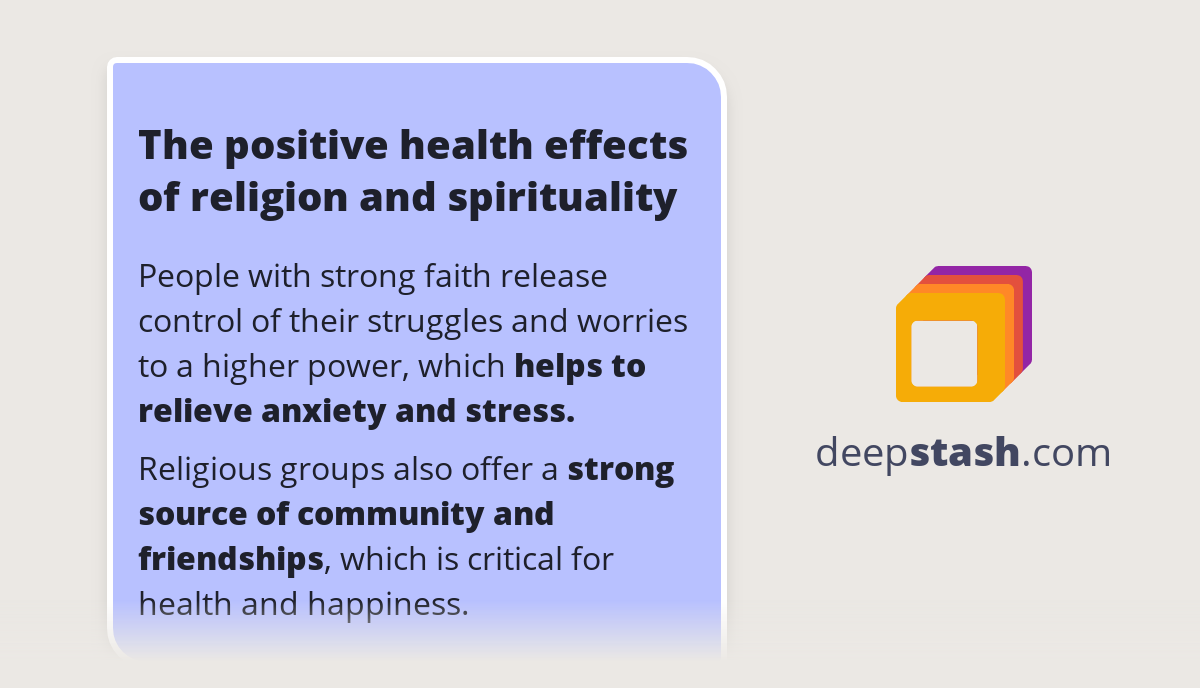


Recent scientific research has shown a strong correlation between the spiritual wellbeing of patients and their physical and mental health. With a holistic approach to healthcare becoming increasingly popular, this study highlights the positive effects of spirituality, religiosity, faith, humanism, and secularism on patient-centric care. By reducing stress levels and promoting overall wellbeing, this study emphasizes the importance of paying attention to the spiritual dimension in healthcare.
Spiritual and mental growth are inextricably linked, each influencing the development of the other. Spirituality encompasses a connection to a sense of purpose, meaning, and transcendence beyond the physical realm, while mental growth refers to the cultivation of cognitive, emotional, and psychological well-being.
Historical Background
Historically, spirituality has been integral to human existence, with most cultures developing religious or philosophical systems to explore the nature of reality and human purpose. In ancient Greece, philosophers such as Socrates and Plato emphasized the importance of self-knowledge and ethical conduct for personal growth. In Eastern religions like Buddhism and Hinduism, spiritual development involves meditation and mindfulness practices aimed at cultivating inner peace and wisdom.
Scientific Evidence
Recent scientific research has corroborated the connection between spirituality and mental health. Studies have shown that individuals with strong spiritual beliefs tend to have lower levels of stress, anxiety, and depression. Spirituality can also contribute to better coping mechanisms in the face of adversity and promote overall well-being.
A study published in the journal JAMA Internal Medicine found that patients with high levels of religious or spiritual involvement had lower rates of mortality and better outcomes in various health conditions, including cardiovascular disease, cancer, and stroke. Another study in the journal Frontiers in Psychology suggested that mindfulness-based interventions can reduce negative emotions, improve emotional regulation, and enhance cognitive functioning.
Integration in Healthcare
With a growing recognition of the holistic nature of health, healthcare professionals are increasingly incorporating spirituality into patient-centered care. Spiritual assessment can help identify individuals' beliefs and values, which can influence their treatment plans and support their emotional and psychosocial needs.
1. What is the difference between spirituality and religion?
Spirituality refers to a personal connection to a sense of meaning and purpose, while religion is an organized system of beliefs and practices. Spirituality can exist independently of religion or within a religious framework.
2. How can spirituality benefit mental health?
Spirituality provides a sense of support, guidance, and hope, which can reduce stress, promote emotional resilience, and improve coping mechanisms.
3. What are some ways to cultivate spiritual growth?
Spiritual growth can be pursued through meditation, prayer, mindfulness practices, service to others, and engaging with nature.
4. How does spirituality impact physical health?
Studies have shown that spirituality can lower stress levels, which has positive effects on the cardiovascular system, immune function, and overall health.
5. Is spirituality only relevant for religious people?
No, spirituality is not limited to religious individuals. People from all walks of life can experience and benefit from spiritual growth.

On the birth anniversary of Dr. APJ Abdul Kalam, the ‘Missile Man’ of India, tributes pour in on social media celebrating his life, vision and impact. A visionary scientist, inspiring leader and true patriot, Dr. Kalam's humility, compassion and constant interaction with students continue to inspire generations. His tireless efforts in defense, science and youth empowerment have strengthened India's path towards self-reliance and his legacy continues to motivate young minds to dream big and work hard for the nation.

Recent studies have found that extreme heat, particularly when combined with high humidity, can have a significant impact on mental health. A study in India showed that when wet bulb temperature exceeded 27°C, the probability of reporting severe depression increased by 0.5%, even when the temperature was slightly lower. This finding is consistent with global reviews that have linked high temperatures to mood disorders, increased hospital admissions for psychiatric conditions, and even elevated suicide risk. The Lancet has also published evidence that rising temperatures worldwide are a growing threat to emotional and cognitive health.

In a meeting with university officials in Udaipur, Rajasthan Governor Hari Bhau Bagde stressed the importance of incorporating India's ancient knowledge traditions into academic research. He highlighted the deep repository of knowledge in India since ancient times and urged scholars and scientists to draw upon this tradition in their work. Bagde also suggested making ancient texts available in university libraries for study and research purposes, in order to shape the intellectual abilities and love for the nation among the younger generation.

John Clarke, Michel H. Devoret, and John M. Martinis have been awarded the 2025 Nobel Prize in Physics for their pioneering research into quantum mechanical tunnelling. Their discovery has opened new possibilities for quantum technologies, and will be formally presented on December 10, the anniversary of Alfred Nobel's death. This announcement follows the tradition of recognizing transformative contributions to science, and the award carries a prestigious prize of 11 million Swedish kronor.

The US-Japanese trio of Mary E Brunkow, Fred Ramsdell, and Shimon Sakaguchi have won the 2025 Nobel Prize in physiology or medicine “for their discoveries concerning peripheral immune tolerance". Through their research, they have shown how the immune system is kept in check and why serious autoimmune diseases do not affect everyone. Sakaguchi found a new class of T cells, while Brunkow and Ramsdell discovered the explanation behind a specific mouse strain's vulnerability to autoimmune diseases. Together, they have significantly advanced our understanding of immunology and autoimmune diseases.

Indian astronaut Shubhanshu Shukla, who recently completed a 20-day space mission, shared his insights and experiences at the convocation ceremony of Dr. APJ Abdul Kalam Technical University. He highlighted the importance of patience, focus, and the inevitability of change in achieving success, and urged the graduating class to actively contribute to shaping a fearless and ambitious India.

The Regional Meteorological Centre (RMC) in Chennai has issued a weather alert for parts of Tamil Nadu, with thunderstorms and light to moderate rainfall expected on Saturday. The alert was issued due to the strengthening of a cyclonic circulation in the Bay of Bengal, which is likely to intensify and form a low-pressure area. The system is expected to affect Tamil Nadu, Puducherry, and Karaikal, with some areas experiencing heavy rainfall and gusty winds. The public is advised to stay updated and take precautions, especially in hilly and western districts.

As a step towards advancing India's deep-sea research capabilities, the Union Science Minister announced a landmark contract with the International Seabed Authority to conduct mineral exploration in the Indian Ocean for the next 15 years. This move will not only help India in expanding its scientific knowledge about the deep sea but also has the potential to strengthen its position as a leading player in the international seabed mining industry.

President Trump has signed a proclamation that makes significant changes to the H-1B visa program. These changes include a new $100,000 fee for employers to sponsor H-1B workers entering the US, as well as higher wage levels and priority for senior, high-paying positions. While workers currently inside the US on valid H-1B status are not directly affected, anyone traveling abroad and seeking re-entry must comply with the new requirements. The lasting impact on the flow of talent, technology, and jobs between India and the US remains uncertain.

On September 7, 2025, a total lunar eclipse, known as a "Blood Moon," was visible to sky-watchers across Europe, Africa, Asia, and Australia. This event, which lasted from 8:58 pm to 2:25 am in India, is the longest total lunar eclipse since 2022 and only the second clearly visible Blood Moon in India since 2018. The Moon appeared red due to the Earth's atmosphere bending sunlight and filtering out blue light, providing ideal viewing conditions for Indian observers in the late evening and early hours of September 8.